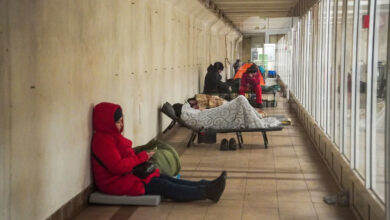
The survey was commissioned by children’s charity Plan International Germany. Its findings were published in regional newspaper Westdeutsche Allgemeine Zeitung.
A group of 1,000 men and 1,000 women aged 18-35 from across Germany were asked to give their views on masculinity for the study, which was carried out online.
Thirty-four percent of men from that age bracket admitted to being violent towards their female partner in the past, to “instil respect in them.” 33 percent said they thought it was acceptable if their “hand slipped” occasionally during an argument with their partner.
Exploring attitudes to victim-blaming and double standards, the survey found that 50 percent of men said they would not want a relationship with a woman who had had many sexual partners, while 20 percent of the women interviewed agreed with this statement.
The survey also found that expectations within a relationship differed greatly between men and women.
Just over half of men – 52 percent – wanted a relationship in the form of a “breadwinner-housewife model,” where they earned most of the money for the household and childcare and household tasks were primarily the woman’s role.
Over two-thirds of the women interviewed disagreed, wanting equal partnerships and shared decision-making.
Just under half of respondents – 48 percent – expressed a dislike for public displays of homosexuality, saying they felt “disturbed” by it.
A German group called the Federal Organization for Equality wrote on Twitter that the findings were “shocking.”
“According to a survey by Plan International Germany, every third young man finds violence against women ‘acceptable’. This urgently needs to change!”
Karsten Kassner from Federal Forum Men, a group which advocates for gender equality, also called for change as he said “It’s problematic that a third of the surveyed men trivialize physical violence against women.”
According to data from Germany’s Federal Criminal Police (BKA), 115,000 women in Germany were victims of partner violence in 2021.
Germany also has one of the highest rates of femicide in Europe – a problem which was exacerbated during the coronavirus pandemic, according to data from the BKA.




